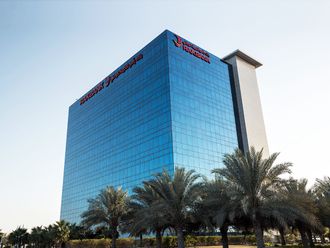
Dubai: The GCC’s non-financial corporate sector is expected to face pressure on profitability resulting from fiscal consolidation efforts in the current year and the next, according to ratings agency Moody’s.
“GGC governments have done fairly well in balancing reform implementation while preventing any systemic shock to the corporate sector. However, fiscal consolidation efforts are having inflationary impact and are putting pressure on corporate profits and consumer sentiment,” said Rehan Akbar, Vice President, Senior Analyst at Moody’s.
Fiscal consolidation measures are having an inflationary effect and are putting pressure on corporate profits and consumer sentiment in the Gulf Cooperation Council region. The reforms are at different stages of implementation in each country with the UAE and Saudi Arabia at the forefront.
The UAE and Saudi Arabia introduced excise taxes on tobacco, energy drinks and soft drinks in 2017 and 5 per cent value-added tax (VAT) in the beginning of 2018, resulting in annual consumer price inflation in January of 4.76 per for the UAE and 3 per cent for Saudi Arabia.
The impact of VAT is not uniform across GCC countries as each country chooses which sectors can be zero-rated or exempted. In general, companies exposed to VAT could face increased working capital needs, higher operating cost to ensure compliance, and potentially lower profitability if the tax cannot be passed on to consumers.
Due to ongoing structural reforms in the region in the context of lower oil prices for prolonged period, analysts expect to see increase fund raising through capital market by both private sector corporates and government related issuers (GRIs).
“We expect to see an increase in GRIs and to a lesser extent private companies accessing both the equity and debt capital markets over the next five years or so. In the light of deterioration in sovereign balance sheets, governments are identifying privatisation candidates in order to unlock values,” Akbar said.
In the context of fiscal reforms, governments are looking at reducing capital contributions in GRIs, leading them to push these entities to access debt markets. Low leveraged GRIs are looking to access debt markets (bonds and sukuk) to optimise their capital structures and funding for capital investments.
Both GRIs and private sector corporates are expected to tap debt markets to diversify their funding sources especially in the context of central banks discouraging banks on concentration of loans, particularly to GRIs.
While most corporates have strong credit fundamentals, Moody’s said the government related issuers could face pressure in the event of any deterioration in sovereign credit quality. Negative rating outlooks on Qatar, Oman and Bahrain suggest higher probability of downward pressure in these economies compared to the UAE, Kuwait and Saudi Arabia, where sovereign outlook is stable.
In the private sector, established family businesses are potential candidates for stock market listings and debt issuances. Moody’s expects a new wave of companies accessing markets through real estate investment trusts (REITs) and real estate operating companies. In Saudi Arabia, under the government’s Vision 2030 road map development of real estate sector is a key area of focus that could lead to substantial funding needs. The creation of REIT law in Saudi in 2016 has already led to about six new listings on the Saudi stock exchange.











